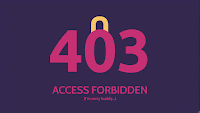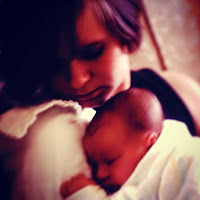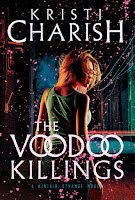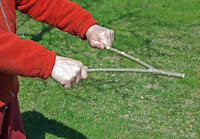And here we are once again. Or maybe we never left. Maybe we’ve been here all along, obsessively reading news articles and checking on friends in hotspots.
No? Just me? Really?
I find that hard to believe…
Anyway, it’s back to the A2Q, this rambly, sprawling series about how to write a book from bare-bones idea to finished manuscript. And it’s the day you’ve all been waiting for. We’re going to start writing. Finally! I mean, this is what the whole A2Q thing was supposed to be about, right? Writing a book. And yet, for some reason, we’re not getting to “writing the book” until part eight. EIGHT? What the freakin’ hell?
Hang on, though.
There’s a reason we took the long path. Well, I took the long path and just sort of led you along with little bread crumbs and Reece’s Pieces and maybe shots of whiskeys. Trust me, I lured you out this way for a reason.
Remember how I compared outlining to road trips? We can make a very loose, bare-bones plan or we can map out the whole thing and schedule every stop along the way. There’s plusses and minuses to both of these, but for the moment I want to flip this idea a bit and compare it to something else.
Have you ever needed to go somewhere you’ve never been before? Not wanted to go—needed to go? Maybe a doctor’s office or a job interview or a bar where that person is waiting for you and you really want to be there and make a good impression? And that place is… six or seven miles away? Maybe ten? Google gives two or three routes and it doesn’t seem quite sure where you’re going but you’ve memorized the names of a couple cross streets and maybe two stores that are supposedly nearby.
What’s that drive usually like? Overly-focused? Watching the clock a lot? Maybe a bit nerve-wracking because you thought you left early enough but you still haven’t found it and you’re watching the clock tick closer and closer to the time you’re supposed to be there and now you’re doing mental calculations about how far you think you’ve still got to go and find parking and… look, you know this feeling, right?
Compare that to the last time you drove to your significant other’s place. Or the grocery store. Or the mall. Did you think about street names? Did you even notice any of the stores along the way. No, of course not. It was familiar and easy and you barely thought about it at all. You just did it.
That’s why we’ve been talking about all this stuff up front. So you’ll have the characters and the setting and the plot and the story solidly in your mind. Heck, maybe you’ve got some bare-bones thoughts about theme. And because we talked about outlines and you moved things around a bit on paper—or even just in your head—you’ve got an idea how all these things fit together. Most importantly, you know what happens next. You’ve got an endpoint you’re aiming for, which means you can always keep going.
So, let’s get writing.
No, seriously. That’s it. Dive in. You’ve got the story in your head, so start writing.
Okay, fine. Here’s some more advice. Just because I like you.
First, dump any idea you have about art. Throw out all those books. Don’t even mention your muse. We’re not making excuses, we’re writing. The only way this happens is you pick up a pen or sit down at the keyboard. That’s the biggest thing. You just need to do it.
Second, think of this a lot like NaNoWriMo, just without the time limit. If it takes you six weeks or three months or half a year to do this… so what? You work at your own pace. You’ve probably got other stuff going on in your life and sweet jeebus there’s a lot going on in the world. Right now you’re under no time limit and nobody’s expecting anything from you.
More importantly, just like NaNoWriMo, absolutely nobody’s going to see this. Seriously. It’s a first draft. It’s going to be messy, you’re going to change a bunch of stuff as you go, and it’s definitely going to need editing. So much editing. Don’t worry, we’ll be getting to that point soon enough.
 If it makes this easier, I forbid you to show it to anyone. Just like that. Forbidden. It’s going to be awkward to explain to your friends, I know, but it’s a little bit of a relief, too, isn’t it? Now you don’t have to worry about it being perfect. You can just put a bunch of words down on the page. And then do it again the next day. And the day after that. Are they all the right words? Probably not. Good thing you’ve been forbidden from showing it to anybody.
If it makes this easier, I forbid you to show it to anyone. Just like that. Forbidden. It’s going to be awkward to explain to your friends, I know, but it’s a little bit of a relief, too, isn’t it? Now you don’t have to worry about it being perfect. You can just put a bunch of words down on the page. And then do it again the next day. And the day after that. Are they all the right words? Probably not. Good thing you’ve been forbidden from showing it to anybody.
Third, don’t judge your process off anybody else’s. Some people can do a first draft in weeks, some need a few months, but like I just said up above—none of them are you moving at your speed. Don’t worry that he turns out great first drafts or that she claims she doesn’t even do drafts(that’s usually a bit misleading anyway). This is your book. It’s just about you. I absolutely, hand-on-my-copy-of-On Writing swear your editor or readers will not care in the slightest how long you did or didn’t spend on this. Unless I tell them I wrote my six-hundred page masterpiece in a week, in which case… they’re going to go into it a little leery.
Fourth, because it bears repeating, please remember nobody’s going to see this. You can’t disappoint anyone. No one will know about those typos. That big plot hole is going to go unseen. You can’t even disappoint yourself. It’s all my fault. I forbade you from showing anyone, remember?
So for now, forward motion. Just get it done. We’ll clean up that other stuff next time. Honest.
Finally, have some fun with this. I know that might sound tough, but… you have to want to write this. You should be excited about writing it. As someone who’s been doing this full time for a while now… yeah, it can be rough and a grind and there are days (especially this past month) when it’s really hard to focus or feel like this isn’t frivolous somehow.
But even on the rough days, I’ve still got passion for it. I’m thinking of how cool this is going to be. When we started this thing, I jokingly came up with the idea of using a werewolf story to illustrate a lot of my points. But as we’ve been talking more and more about Phoebe and Luna and their family legacy and Luna’s curse… well, I started to get invested in it. I saw solid directions it could go in and even came up with a few little twists I liked and one big twist I really liked. To be honest, I’ve had a few developments I didn’t mention because now I’m thinking I want to write this as my next project (bumping my historical horror/weird western idea back yet again).
I’ve got nothing to back it up past my own gut, but I think readers can tell when the writer is bored. If I’m not enjoying writing it, they’re not going to enjoy reading it. My lack of energy for a character or a point of view or a sequence is going to be clear. Again, just my opinion, no hard research behind it, and there are always exceptions to the rule. But I really think it’s true.
So for now, just write. You’ve got the story in your head. Put it on the page “good enough” for now, we’ll make it better later.
Ready?
That’s a rough, first-draft, off-the-top-of-my-head page and a half. It’s not great, I’m probably going to tweak the dialogue, and I already have some thoughts on word-choice. But the point was just to get it out.
I’m a big fan of exploring and learning stuff in a first draft. But I think a lot of people get caught up because they don’t have a good sense of their characters or the world, and they don’t know where they’re going. They’ve got too much to explore, and so a lot of their first draft gets eaten up dealing with… well, all that stuff we’ve been going over for the past few weeks.
 But when you’ve got enough of it in your head, you can just go.
But when you’ve got enough of it in your head, you can just go.
Will it be perfect? Definitely not. But that’s okay, because we’re just doing a first draft.
So get to it.
Next time… should I keep going with the A2Q? Or should we take a break and I could talk about something else for a bit? Let me know what you’re thinking.
Until then… go write.
Write like nobody’s going to see it.
















